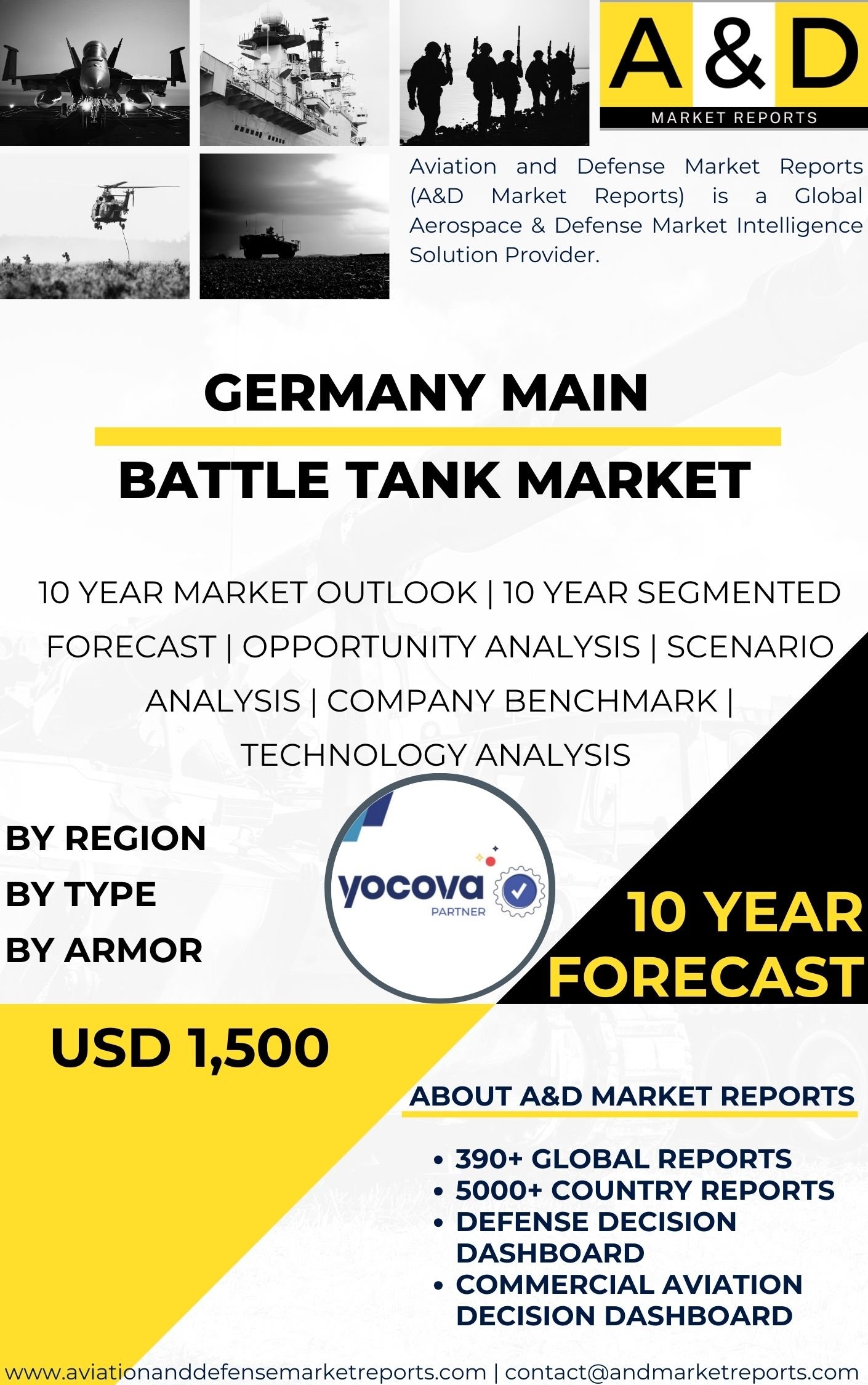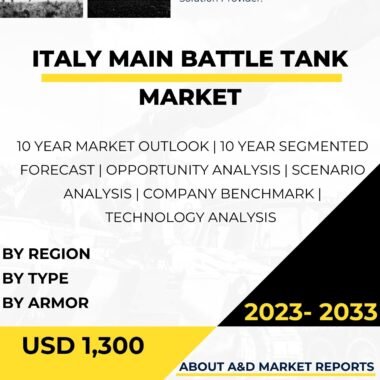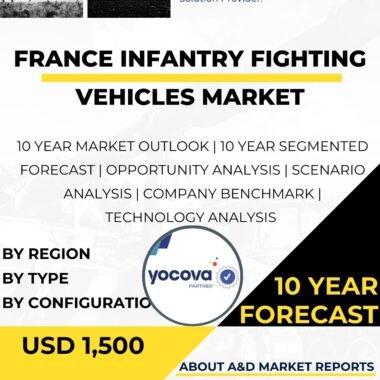Description
The Germany main battle tank market holds a significant position within the country’s defense industry and the global armored vehicle market. Main battle tanks (MBTs) are heavily armored, powerful, and versatile combat vehicles designed to operate effectively in various battlefield scenarios. As a key player in the European defense sector and a leading exporter of military equipment, Germany’s main battle tank market has been characterized by technological advancements, international collaborations, and a commitment to maintaining a modern and capable armored force.
Historically, Germany has been renowned for its expertise in armored warfare, exemplified by iconic tanks such as the Leopard 2. The Leopard 2, developed in the late 1970s, became one of the most successful and widely used MBTs globally. Germany’s focus on MBTs was primarily driven by its experiences in World War II and the Cold War era, during which armored warfare played a crucial role in military strategies.
The Germany main battle tank market has been shaped by changing military doctrines and evolving security threats. In recent years, there has been a shift in focus from large-scale, conventional warfare between superpowers to more complex and asymmetric conflicts. Military forces worldwide have recognized the importance of versatility and mobility, leading to a renewed interest in MBTs with enhanced capabilities for urban warfare, counter-insurgency operations, and expeditionary missions.
Moreover, Germany’s commitment to maintaining a credible and modern armored force has driven the development of technologically advanced MBTs. The German Armed Forces’ investment in research and development, along with the collaboration with the German defense industry, has resulted in the continuous improvement and modernization of the Leopard 2 and other armored platforms.
The Germany main battle tank market is also influenced by international collaboration and joint development programs. Germany has engaged in partnerships with other European nations to develop and produce advanced MBTs, fostering cooperation and enhancing interoperability among allied forces. Collaboration projects, such as the European Main Ground Combat System (MGCS), aim to create the next generation of MBTs, reflecting the country’s commitment to maintaining a modern and capable armored force in cooperation with its European partners.
Advancements in technology have been crucial drivers of the Germany main battle tank market. These technological developments include improvements in armor materials, sensor systems, fire control, and communication capabilities. Reactive and composite armor solutions have increased the protection level of MBTs, while sophisticated sensors and targeting systems have enhanced their situational awareness and engagement capabilities.
Additionally, the integration of digital technologies and network-centric warfare concepts has further enhanced the effectiveness of MBTs on the modern battlefield. The ability to exchange real-time data with other friendly forces and command centers enables MBTs to operate as part of a coordinated and agile force, maximizing their combat potential.
The export potential of German main battle tanks has also been a significant aspect of the market. Germany’s reputation for producing high-quality military equipment, including MBTs, has made it an attractive supplier for countries seeking to upgrade or expand their armored capabilities. However, export decisions are subject to international regulations and political considerations, given the sensitivity of military technology and the potential impact on regional security dynamics.
Challenges faced by the Germany main battle tank market include budget constraints and the need to balance heavy investments in MBTs with other defense priorities. The cost of developing and maintaining advanced MBTs can be substantial, and the decision to allocate resources to armored capabilities must be carefully weighed against other defense needs.
Furthermore, the future of armored warfare is evolving with the advent of new technologies, such as unmanned ground vehicles (UGVs) and autonomous systems. These developments may influence the requirements for MBTs and how they are employed on the battlefield. Germany’s defense industry and military planners must remain vigilant to adapt to emerging trends and maintain a cutting-edge armored force.
In conclusion, the Germany main battle tank market is a vital and dynamic aspect of the country’s defense industry. With a strong historical legacy in armored warfare, Germany continues to prioritize the development and modernization of its main battle tanks. Technological advancements, international collaboration, and a commitment to maintaining a credible armored force have contributed to the market’s growth and competitiveness. As Germany navigates changing security challenges and explores new technologies, the main battle tank market is expected to play an essential role in the country’s defense capabilities and international defense cooperation efforts.




